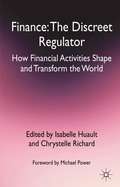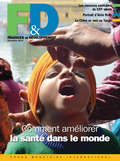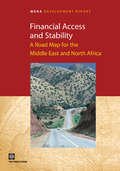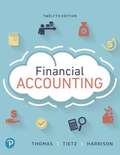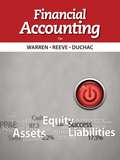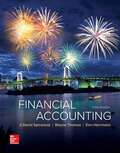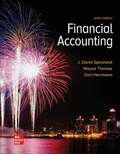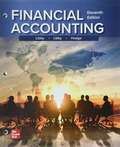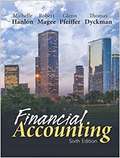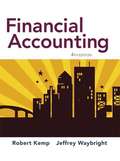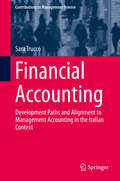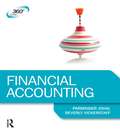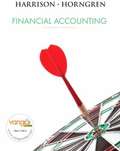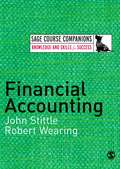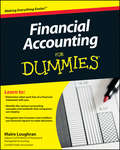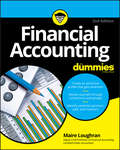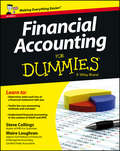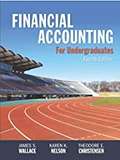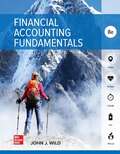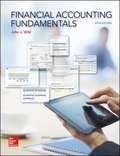- Table View
- List View
Finance: The Discreet Regulator
by Isabelle Huault Chrystelle RichardThe global financial crisis that began in the summer of 2007 has brought the financial industry to centre stage. While most current analysis focuses on the way finance can be regulated in the topical context of the economic crisis, this book aims to show how financial activities actually shape and transform the world. Highlighting that the true regulators of the economy are not only regulatory state authorities, the book demonstrates that the financial sphere really does contribute to rule-setting. It argues that actors that seem to be the objects of regulation or intervene only at its fringe are in fact 'discreet regulators' which provide the institutional framework that fosters the creation and globalization of markets. Building on a series of case studies, Finance: The Discreet Regulator highlights how public authorities and private actors jointly regulate the real world, with joint regulation being dominated by a multiplicity of financial actors, and looks at a variety of key players, who take part in the very heart of the regulatory process.
Finances & Développement
by Fonds monétaire internationalA report from the International Monetary Fund.
Finances & Développement
by International Monetary FundA report from the International Monetary Fund.
Financial Access and Stability
by The World BankThe countries of the Middle East and North Africa (MENA) have been recovering from the global financial crisis, but the recent political turmoil has interrupted the pace of credit and output recovery in many countries. The political turmoil in the MENA region reveals deep-seated frustrations and a sense of political, social, and economic exclusion, especially among the youth. The relatively weak growth performance reflects a combination of insufficient reforms and weak reform implementation, including financial sector reforms. The structural weaknesses of financial sectors imply that access to finance may remain restricted even with a full recovery of credit activity. Therefore, the region's countries face an ambitious reform agenda to revert two decades of relatively poor performance of output and employment growth. Financial development should be a central component of the region's growth agenda. This study reviews the region's financial systems, the severity of the limitations on access to finance, and the main factors behind such limitations. It goes on to provide a road map for expanding access and preserving financial stability.
Financial Accounting
by Joe Ben Hoyle C. J. SkenderThis book is suitable for an undergraduate or MBA level Financial Accounting course. If authorship matters (and we believe it is everything) then this book is destined to be a classic. There are no two better authors than these. Joe Ben Hoyle is co-author of two current market-leading advanced accounting textbooks with McGraw-Hill. He and and co-author CJ Skender are nationally recognized as master teachers. Both have won numerous teaching awards, and both were recently recognized by BusinessWeek as top undergraduate professors. The authors bring their collective teaching wisdom to bear in this book not by changing "the message"(financial accounting content), but by changing "the messenger" (the way the content is presented). The approach centers around utilizing the Socratic method, or simply put, asking and answering questions. The reason that this approach continues to be glorified after thousands of years is simple - it engages students and stresses understanding over memorization. So this text covers standard topics in a standard sequence, but does so through asking a carefully constructed series of questions along with their individual answers.
Financial Accounting
by Charles Horngren Walter Harrison C. Thomas Wendy TietzAccounting is the language of business, and understanding the role accounting plays in business is critical to a student's success in earning a business degree. Financial Accounting puts the focus on the purpose of Accounting in business. With student-friendly examples and streamlined chapters, the 12th Edition delivers a student-centric approach to learning financial accounting. Time-tested resources like the Turnkey Case Resources, help students grasp the practical concepts of accounting, so that they can put them into practice in their future business careers.
Financial Accounting
by Carl S. Warren James M. Reeves Jonathan DuchacActivate Learning with Warren/Reeve/Duchac's, FINANCIAL ACCOUNTING! Market-leading FINANCIAL ACCOUNTING has been on the forefront of innovation and change based on the needs of today's students. Warren offers you clear guidance to complete homework with an efficient presentation for today's learner. The high impact writing style and streamlined design makes important information accessible, with a focus on providing the best and most complete examples. The Complete Learning System in FINANCIAL ACCOUNTING and CengageNOW is built around the way you use textbooks and online resources to learn, study and complete homework, allowing you to achieve ultimate success in this course. The end goal of Warren/Reeve/Duchac's text and technology learning system is to Activate Learning & making you a more active participant in the learning process and making you better prepared--ready to take on the rest of your educational and career goals.
Financial Accounting
by Wayne Thomas Don Herrmann David SpicelandDon’t you love those moments in your course when students are fully engaged? When the “Aha!” revelations are bursting like fireworks? David Spiceland, Wayne Thomas, and Don Herrmann have developed a unique set of materials based directly on their collective years in the classroom. They’ve brought together best practices like highlighting Common Mistakes, offering frequent Let’s Review exercises, integrating the course with a running Continuing Problem, demonstrating the relevance of the course with real-world companies and decision analysis, and conveying it all in a student-friendly conversational writing style. The authors have developed a concise and well-organized learning framework to show students that accounting consists of three major processes: measuring, analyzing, and communicating. By consistently tying each lesson into this framework, instructors can continue to improve student outcomes. After the proven success of the first four editions of Financial Accounting, the fifth edition will continue to motivate, engage, and challenge students. Paired with the market-leading power of the Connect platform, the Spiceland/Thomas/Hermann author team will truly illuminate the financial accounting course for each student.
Financial Accounting
by Wayne Thomas Don Herrmann David SpicelandDon’t you love those moments in your course when students are fully engaged? When the “Aha!” revelations are bursting like fireworks? The authors have developed a unique set of materials based directly on their collective years in the classroom. They’ve brought together best practices by (1) building an Organized Learning Framework for Financial Accounting, (2) reinforcing the Framework in each chapter’s text and end-of-chapter assignments, and (3) enriching that Framework using real-world companies, Excel assignments, General Ledger problems, data analytics tools, and a variety of auto-graded cases. The material is communicated in a student-friendly, concise and conversational writing style. After the proven success of the first five editions of Financial Accounting, we are confident that the sixth edition will not only motivate, engage, and challenge students—it will illuminate the financial accounting course like never before.
Financial Accounting
by Robert Libby Patricia Libby Frank HodgeLibby/Libby/Hodge wrote this text based on their belief that the subject of financial accounting is inherently interesting, but financial accounting textbooks are often not. They believe that accounting is an exciting field of study and one that is important to future careers in business. When writing this text, they considered career relevance as their guide when selecting material, and the need to engage the student as their guide to style, pedagogy, and design. Financial Accounting 11e successfully implements a real-world, single focus company approach in every chapter. The companies chosen are engaging and the decision-making focus shows the relevance of financial accounting regardless of if a student has chosen to major in accounting. Libby/Libby/Hodge believes in the building-block approach to teaching transaction analysis. Most faculty agree that mastery of the accounting cycle is critical to success in financial accounting, and yet most financial texts introduce and develop transaction analysis in one chapter, bombarding a student early in the course with an overload of new concepts and terms. The authors slow down the introduction of transactions, giving students time to practice and gain mastery. This building-block approach leads to greater student success in their study of later topics in financial accounting such as adjusting entries.
Financial Accounting
by Michelle Hanlon Robert Magee Glenn Pfeiffer Thomas Dyckman[This book equips] students with the accounting techniques and insights necessary to succeed in today's business environment. It reflects our combined experience in teaching financial accounting to college students at all levels. For anyone who pursues a career in business, the ability to read, analyze, and interpret published financial reports is an essential skill. [This book] is written for future business leaders who want to understand how financial statements are prepared and how the information in published financial reports is used by investors, creditors, financial analysts, and managers.
Financial Accounting
by Robert Kemp Jeffrey WaybrightFor introductory courses in Financial Accounting. Understanding Financial Accounting as the Language of Business Once individuals see that accounting is the language of business, they are on their way to academic and professional success. Financial Accounting translates the essentials of accounting to readers so they understand why and when financially sound decisions are made in business today. The Fourth Edition uses real-world examples from Bold City Brewery and other businesses that readers encounter in their everyday lives, making the material relevant and giving readers more of those "I get it" moments.
Financial Accounting
by Sara TruccoThis book presents empirical evidence on the convergence of financial and management accounting in the Italian context. The author provides an overview of the development paths of financial accounting including its evolution, role of non-financial, forward looking and voluntary disclosures, and internal determinants such as corporate governance and business culture. The author uses the premises of agency, signalling, legitimacy and institutional theories in understanding this evolution, and includes the perspective of professional associations and academics on the topic. Based on survey data, the reader is provided with valuable insights into the Italian accounting scene.
Financial Accounting (17th Edition)
by Jan R. Williams Susan F. Haka Mark S. Bettner Joseph V. CarcelloWhile many texts characterize themselves as having either a “user” approach or a “preparer” approach, Williams’ Financial Accounting is written for faculty who want to strike a balance between these approaches. Business majors will find relevance in the “Ethics, Fraud & Corporate Governance,” “Your Turn” and “Case in Point” boxes throughout the chapters while accounting majors will receive a firm grounding in accounting basics that will prepare them for their intermediate course.
Financial Accounting (360 Degree Business)
by Parminder Johal Bev VickerstaffClear, concise, and written by experts currently lecturing in the field, Financial Accounting focuses exclusively on what you need to know for success in your course and career. Students looking for a focused introduction to financial accounting will appreciate this book. This innovative textbook includes features which will particularly appeal to international students, including: a clear introduction to accounting from its initial concepts, through recording transactions to the accurate interpretation of accounts relevant case studies that illustrate key accounting principles up-to-date terminology to prepare you for current business practice worldwide summaries, activities and review questions to help reinforce your understanding Part of the 360 Degree Business, which provides accessible yet stimulating introductions to core business studies modules, the text comes with additional support materials including interactive multiple choice questions available at www.routledge.com/cw/vickerstaff.
Financial Accounting (7th Edition)
by Charles T. Horngren Walter T. Harrison Jr.New edition of a text in which Harrison (Baylor U.) and Horngren (Stanford U.) discuss all aspects of financial accounting. The 12 chapters cover financial statements, processing information, accrual accounting, internal control and cash, plant assets, short-term investments and receivables, inventory, stockholders' equity, using the income statement and the statement of stockholders' equity, current and long-term liabilities, long-term investments and international, and the statement of cash flows. New features include short exercises to open the assignment material for each chapter, and Excel application problems. Annotation c. Book News, Inc., Portland, OR (booknews.com)
Financial Accounting (8th edition)
by Marian Powers Belverd E. Needles Jr.The stated goal of this textbook is to teach students, and others (such as managers) how to do financial accounting. It assumes no accounting background.
Financial Accounting (SAGE Course Companions series)
by Robert T Wearing Mr John StittleThe SAGE Course Companion on Financial Accounting is an accessible introduction to the subject that will help readers to master key concepts and enhance their thinking skills in line with course requirements. It provides support on how to revise for exams and prepare for and write assessed pieces. Designed to compliment existing textbooks for the course, the companion provides: - Easy access to the key issues in Financial Accouting - Practice questions and sample answers to help you prepare for exams and assignments - Tips to help you remember key points and earn extra marks - Helpful summaries of the approach taken by the main course textbooks - Guidance on the essential study skills required to pass the course The SAGE Course Companion on Financial Accounting is much more than a revision guide for undergraduates; it is an essential tool that will help readers take their course understanding to new levels and help them achieve success in their undergraduate course.
Financial Accounting For Decision Makers
by Mark DeFondThis is an ideal text for use in the first financial accounting course at both the undergraduate and the graduate level. With a strong emphasis on the interpretation of real-world financial statements, the book teaches students how to read, analyze, and interpret financial accounting data to make informed business decisions without using the traditional debit/credit paradigm. The book is filled with examples that use financial reports from actual companies, an approach that students find engaging. The objective of this text is to prepare students for careers in business by providing them with a solid foundation in financial accounting and reporting without overloading them with the mechanics and procedures more appropriate for future accountants. This book makes extensive use of real-world companies to help students understand how to use accounting information.
Financial Accounting For Dummies
by Maire LoughranYour plain-English guide to navigating a financial accounting courseDespite the economic landscape and job market, demand for accountants remains strong, and accountants will continue to see high demand for their services as the economy rebounds and businesses grow. Additionally, one of the effects of the economic downturn is a greater emphasis on accountability, transparency, and controls in financial reporting.With easy-to-understand explanations and real-life examples, Financial Accounting For Dummies provides students who are studying business, finance, and accounting with the basic concepts, terminology, and methods to interpret, analyze, and evaluate actual corporate financial statements.Covers traditional introductory financial accounting course materialExplores concepts accountants and other business professionals use to prepare reports Details mergers and acquisitions purchase and pooling, free cash flow, and financial statement analysisWhether you're a student on your way to earning a bachelor's degree, MBA, or MAcc, Financial Accounting For Dummies gives you a wealth of information to grasp the subject and ace the course.
Financial Accounting For Dummies
by Maire LoughranLearn to speak fluent finance—and ace your exams! Warren Buffett said that “accounting is the language of business.’’ And for many accounting and business students, the obscure terminology of finance makes fluency hard to achieve. Financial Accounting For Dummies can help to demystify abstract concepts in a straightforward, friendly way. With step-by-step examples and real-world scenarios practice, it helps you grasp the fundamentals of finance until you’re ready to interpret, analyze, and evaluate corporate financial statements like you’ve been doing it all your life. Packed with easy-to-understand examples, this book takes you from the big three financial statements all the way through to income taxes. Or join the anti-fraud squad by discovering how to spot the ten most common accounting shenanigans. Grasp introductory financial accounting course material Explore common concepts financial professionals use to compile reports Understand mergers and acquisitions, free cash flow, and statement analysis Know the ten industries with special accounting standards Whether you’re studying for your bachelor’s, MBA, or MAcc, you’ll find everything you need to speak the language of finance like a native—and use it to get to wherever you want to go!
Financial Accounting For Dummies - UK
by Maire Loughran Steven CollingsYour plain–English guide to financial accounting for students and trainees. Financial Accounting For Dummies provides students who are studying finance, accounting and business with the basic concepts, terminology, and methods to interpret, analyse, prepare and evaluate financial statements. Covers concepts accountants and other business professionals use to prepare reports; mergers and acquisitions purchase and pooling; free cash flow; and financial statement analysis. Whether you′re a student on your way to earning a degree, working towards your ACCA qualification, or a trainee just starting out in your accounts career, Financial Accounting For Dummies gives you a wealth of information to grasp the subject. This UK version is adapted to take in UK accounting practice and international reporting standards Provides a firm grounding in interpreting, analysing, preparing and evaluating corporate financial statements Includes easy–to–understand explanations and real-life examples to consolidate learning
Financial Accounting For Undergraduates
by James Wallace Theodore Christensen Karen NelsonFinancial Accounting for Undergraduates textbook.
Financial Accounting Fundamentals
by John J. WildFinancial Accounting Fundamentals responds to the market's request for a succinct book; a book that balances large and small businesses, and one that is contemporary, engaging, and accessible for today's students. With content that is presented in organized learning blocks ending with a need-to-know examples, the text makes it easy for students to find the most relevant content needed to solve problems. Chapter opening vignettes use dynamic, well-known entrepreneurs to appeal to all students and show the relevance of accounting. Students are encouraged to think like a businessperson and apply what they learn. A wide variety of assignments provide instructors with flexibility to teach, assess, and challenge students on several levels. Join your colleagues and the millions of students that have used this best-selling learning system to advance their education and careers.
Financial Accounting Fundamentals (Fifth Edition)
by John J. WildEnhancements in technology have changed how we live and learn. Working with learning resources across devices,whether smartphones, tablets, or laptop computers,empowers students to drive their own learning by putting increasingly intelligent technology into their hands.Whether the goal is to become an accountant, a businessperson,or simply an informed consumer of accounting information, Financial Accounting Fundamentals has helped generations of students succeed. Its leading edge accounting content, paired with state-of-the-art technology, supports student learning and elevates understanding of key accounting principles. Financial Accounting Fundamentals also delivers innovative technology to help student performance. Connect Accounting provides students with a media-rich eBook version of the textbook and offers instant grading and feedback for assignments that are completed online. Our system for completing exercise and problem material takes accounting content to the next level, delivering assessment material in a more intuitive, less restrictive format that adapts to the needs of today’s students.
